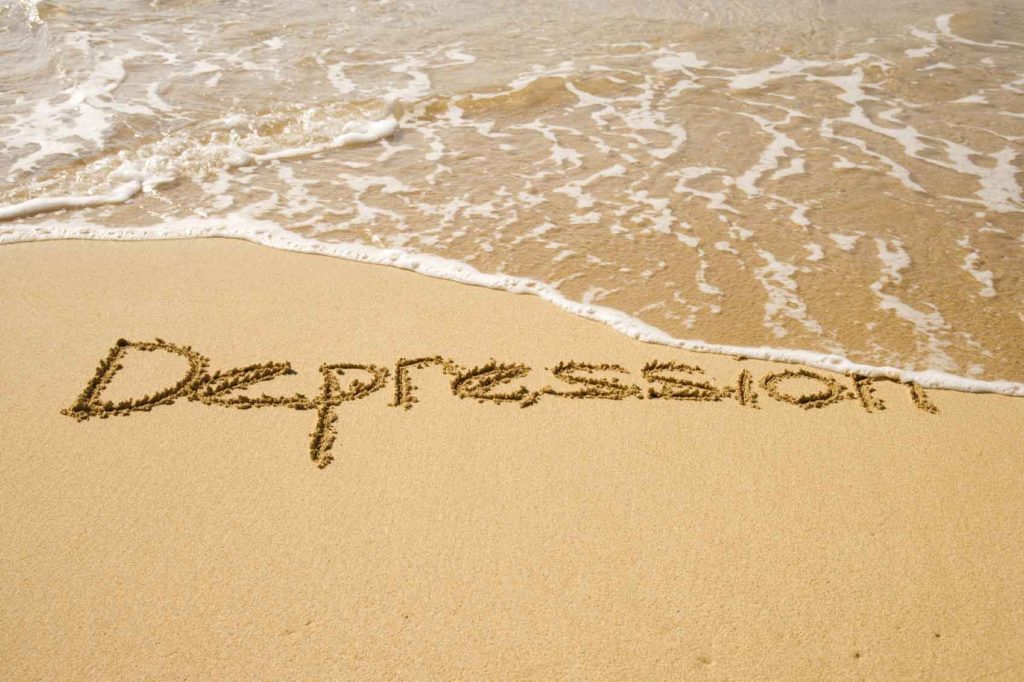Depression is the leading cause of disability worldwide. At its worst, depression can lead to suicide, a tragic fatality associated with the loss of about 800,000 lives every year. Depression is a treatable psychological disorder.
Depression is the leading cause of disability worldwide. At its worst, depression can lead to suicide, a tragic fatality associated with the loss of about 800,000 lives every year. Depression is a treatable psychological disorder.
The word Depression brings to mind something negative, bad and to be avoided. We all feel sad sometimes when we face difficult or unpleasant situations. However, feeling sad in response to a life event does not necessarly mean that a person has clinical depression.
Depression is a common psychological disorder and presents with depressed or sad mood, loss of interest or pleasure, feelings of guilt or low self-worth, disturbed sleep or appetite, low energy, and poor concentration. These problems can become chronic or recurrent and lead to substantial impairments in an individual’s ability to take care of his or her everyday responsibilities.
Depression can affect anyone – children, adults and the elderly and both men and women can all have depression.
What causes Depression?
The causes of depression are many – it is hard to pinpoint one, but usually several factors working together often results in clinical depression.
Genes and biology: Often someone with depression has a family history of depression suggesting that herdity plays a role. It is however not necessary that everyone who has a family member with depression will develop depression himself/herself although they have a higher likelihood of developing depression. Neurotransmitters are chemicals that send signals and help neurons communicate in the brain. Abnormalities in the functioning of these chemicals can alter our mood and lead to symptoms of depression.
Personality Characteristics: Personality characteristics such as chronic low self-esteem, unrealistic expectations, sensitivity to criticism and passive response styles to interpersonal problems can make a person more likely to develop depression. Such behaviour characteristics also involve negative thinking habits that lead to a negative outlook about themselves and the world around them and cause difficulties in interpersonal relationships and inadequate problems solving.
Stressful Life Events: Finally, a depressive episode may be triggered by a stressful life event such as a relationship break-up, being bullied at school, death of a loved one, loss of job or even the birth of a baby. Most people cope with stressors adequately and even learn new skills from the experience. For some however, these events lead to clinical depression and they might need professional intervention to recover from it.
How is Depression Treated?
People with depression cannot ‘just snap out of it’. They are not intentionally sad nor are they weak because they feel sad. A combination of medication and psychological treatments has been shown to be most effective when dealing with chronic or severe depression. With medication, a person’s energy recovers and recalcitrant negative thinking begins to change while psychotherapy facilitates the learning of new cognitive (thinking) skills, changing depressed behaviours and improves long-term coping.
What can I do if I have the symptoms of Depression?
- Consult a psychologist or other mental health professional if you think you might be depressed. They are the best qualified to assess your symptoms, make an appropriate diagnosis and provide adequate treatment.
- Make a list of your daily activities and include things that you used to enjoy, even if they do not give the same pleasure now. Motivate and reward yourself for completing tasks on your list.
- Focus on positive aspects in your everyday life – no matter how small or trivial they may seem.
- Good eating habits, sleep routines and regular exercise will all go a long way to help during this time. In particular, exercise has been shown to have a positive impact on mood and even a brisk walk for 20-30 minutes a day can help.
If you have suicidal thoughts or an urge to act on them, please talk to your medical practitioner or mental health professional immediately.
You can call the local suicide hotline at anytime of the day or night at Samaritans of Singapore, 1800 221 4444.
Remember that these feelings will pass and help is available.


